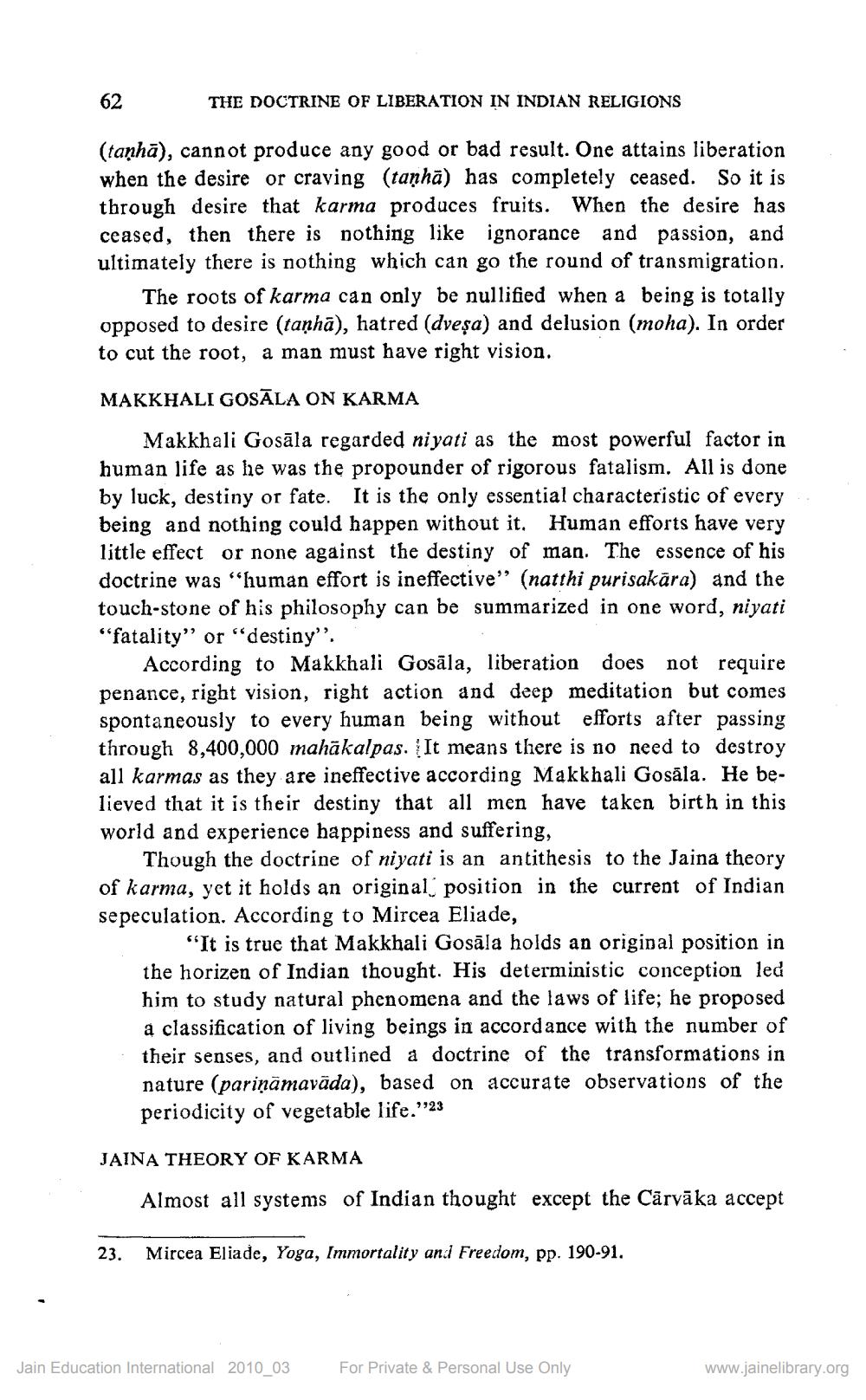________________
62
THE DOCTRINE OF LIBERATION IN INDIAN RELIGIONS
(taṇhā), cannot produce any good or bad result. One attains liberation when the desire or craving (taṇhā) has completely ceased. So it is through desire that karma produces fruits. When the desire has ceased, then there is nothing like ignorance and passion, and ultimately there is nothing which can go the round of transmigration.
The roots of karma can only be nullified when a being is totally opposed to desire (taṇhā), hatred (dveşa) and delusion (moha). In order to cut the root, a man must have right vision.
MAKKHALI GOSĀLA ON KARMA
Makkhali Gosāla regarded niyati as the most powerful factor in human life as he was the propounder of rigorous fatalism. All is done by luck, destiny or fate. It is the only essential characteristic of every being and nothing could happen without it. Human efforts have very little effect or none against the destiny of man. The essence of his doctrine was "human effort is ineffective" (natthi purisakāra) and the touch-stone of his philosophy can be summarized in one word, niyati "fatality" or "destiny".
According to Makkhali Gosāla, liberation does not require penance, right vision, right action and deep meditation but comes spontaneously to every human being without efforts after through 8,400,000 mahākalpas. It means there is no need to destroy all karmas as they are ineffective according Makkhali Gosāla. He believed that it is their destiny that all men have taken birth in this world and experience happiness and suffering.
Though the doctrine of niyati is an antithesis to the Jaina theory of karma, yet it holds an original position in the current of Indian sepeculation. According to Mircea Eliade,
"It is true that Makkhali Gosāla holds an original position in the horizen of Indian thought. His deterministic conception led him to study natural phenomena and the laws of life; he proposed a classification of living beings in accordance with the number of their senses, and outlined a doctrine of the transformations in nature (parināmavāda), based on accurate observations of the periodicity of vegetable life.'23
JAINA THEORY OF KARMA
Almost all systems of Indian thought except the Cārvāka accept
23. Mircea Eliade, Yoga, Immortality and Freedom, pp. 190-91.
Jain Education International 2010_03
For Private & Personal Use Only
www.jainelibrary.org




